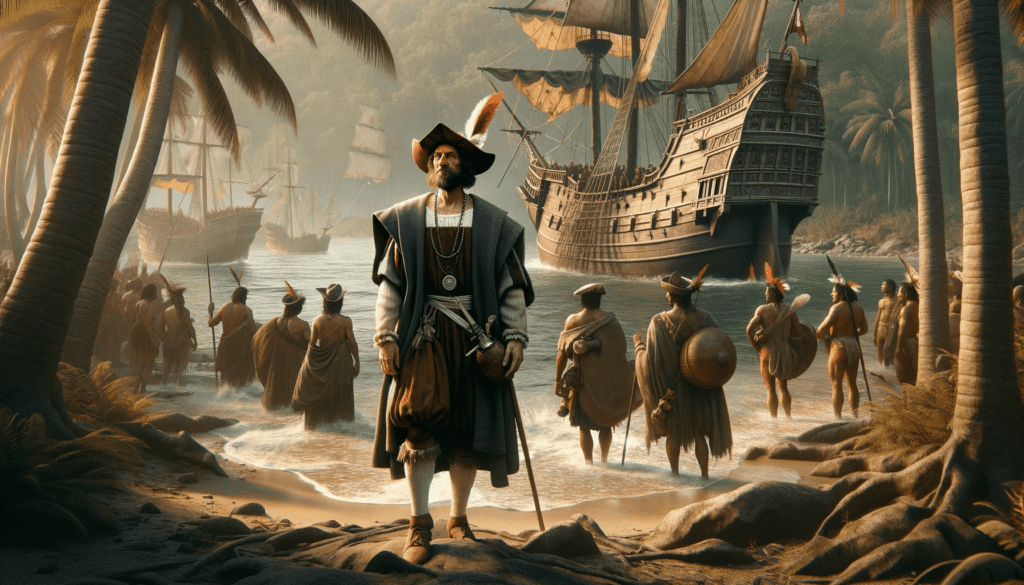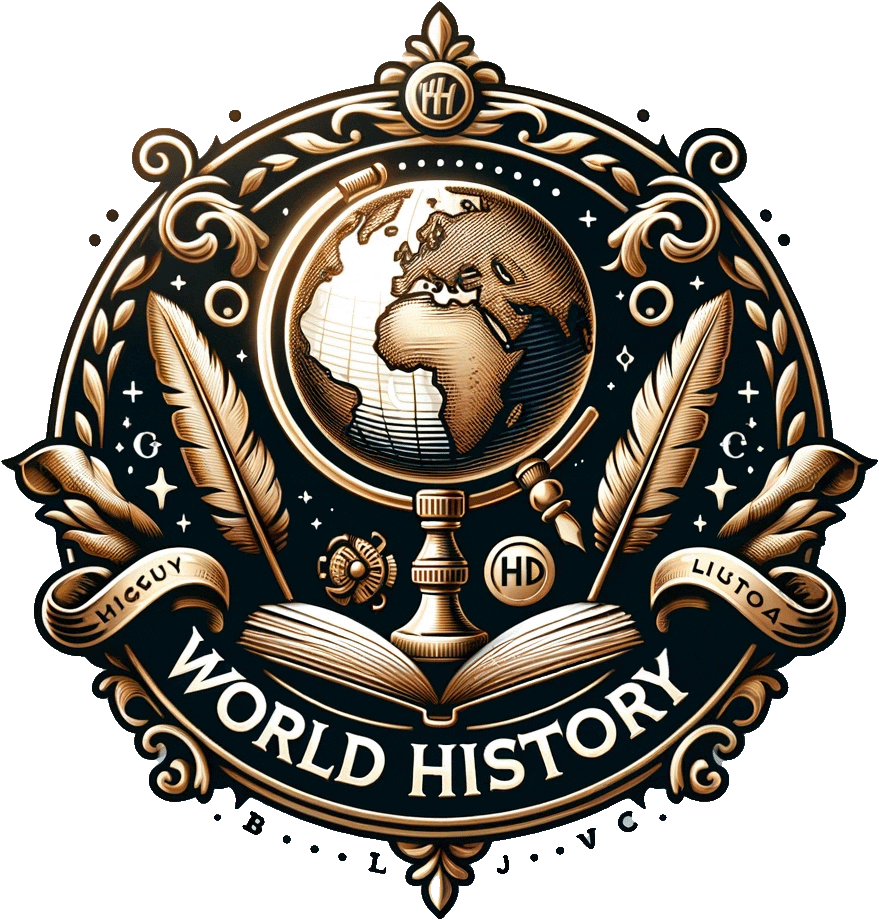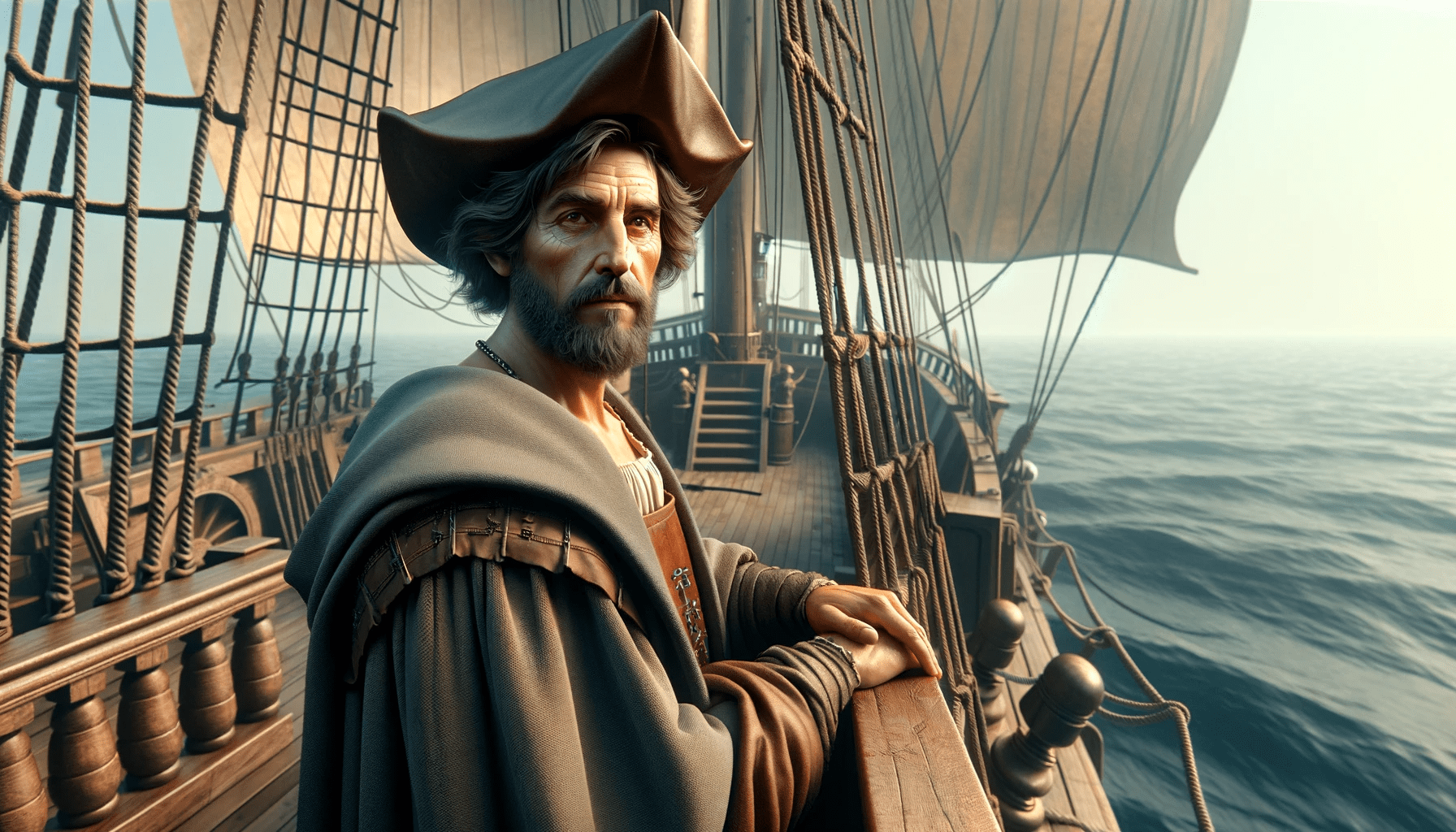Columbus’ Discovery of the Americas: A Turning Point in History
In 1492, Christopher Columbus sailed across the ocean and stumbled upon what we now know as America. This event marked a turning point in human history and had far-reaching consequences for both the Old and New Worlds.
Columbus’ Journey: A Brave Venture
Columbus, an Italian explorer in the service of Spain, was looking for a new route to Asia. His trip, funded by the Spanish royal house, was daring and risky. With three ships – the Niña, the Pinta and the Santa María – he set sail for the unknown.
The Preparation
Before his voyage, Columbus accurately gathered information about sea currents and wind patterns. He strongly believed in the feasibility of his plan to sail westward to Asia.
The Crossing
The crossing was long and challenging, with many uncertainties and dangers. But on Oct. 12, 1492, Columbus landed on one of the Bahamas, which he mistook for an island off the coast of Asia.
The Consequences of Discovery
Columbus’ discovery had profound effects on both the European and indigenous populations of the Americas.
Impact on Europe
In Europe, the discovery of a “new world” was seen as a huge opportunity for expansion and trade. It led to a period of colonization and exploration, with many European powers competing for territory and wealth in the Americas.
Impact on Indigenous Peoples
For the indigenous people of the Americas, the arrival of Europeans was catastrophic. They faced diseases to which they had no immunity, and violent conquest and subjugation. This resulted in a huge decline in the indigenous population and a loss of their traditional way of life.
Cultural Exchange
The discovery also led to an exchange of goods, ideas, plants, animals and diseases between the Old and New Worlds, known as the Columbian Exchange.
The Start of Globalization
This event can be seen as the beginning of globalization, in which the world became increasingly connected through trade and cultural exchange.
The Legacy of Columbus
Columbus’ legacy is complex and controversial. While honored for his courage and navigational skills, he has also been criticized for the negative impact of his travels on indigenous populations.
Worship and Criticism
In some parts of the world, Columbus Day is celebrated, while others call for a reconsideration of its role in history.
An Ongoing Debate
The discussion of Columbus’ legacy reflects broader questions about colonization, cultural exchange and the impact of historical discoveries on indigenous peoples. This discussion highlights the importance of a balanced view of history, recognizing both the achievements and negative impact of such voyages of discovery.
Reflections on the Modern World
The legacy of Columbus and his discovery of America is more than a historical fact; it is a mirror for the modern world. It reminds us of the complexity of human history and the lasting consequences of our actions.
Lessons for Today
The history of Columbus can teach us important lessons about cultural interaction, respect for indigenous peoples, and the responsibility that comes with discovery and conquest. It highlights the importance of ethical action and empathy in our global interactions.
The Role of Historical Awareness
A deep understanding of history, including the actions and consequences of figures such as Columbus, is crucial to understanding contemporary social and political issues. It promotes a more nuanced and empathetic approach to world history and international relations.
Impact on Education and Culture
The story of Columbus also affects our educational system and cultural understanding. It offers an opportunity to think critically about how historical narratives are told and interpreted, and how they shape the perceptions of younger generations.
Conclusion
Christopher Columbus’ voyage to America in 1492 is an important and multifaceted chapter in human history. Its legacy is not black and white, but a complex mixture of courage, curiosity, conquest and tragedy. Understanding this history helps us understand not only our past, but also the world we live in today.



Leave a Reply